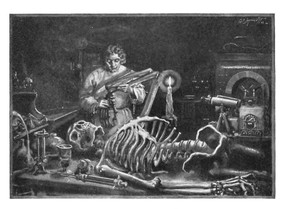 OK, so we've established that your main character needs to be essentially 'good', and now I might seem to be contradicting myself. Well, I am and I'm not.
OK, so we've established that your main character needs to be essentially 'good', and now I might seem to be contradicting myself. Well, I am and I'm not.
Look at it this way, how do you feel about people in your life who are perfect? They never seem to do anything wrong, they're good at everything, and seem to have a boatload of luck. We hate these people, right? Same goes for fictional characters.
If you want a character to be likeable, he or she has to be flawed. How flawed do I mean? Well, that depends on your character and the circumstances you're thrusting her in to. But, think of some of your favorite characters and list their flaws.
- Hamlet's indecision
- Elizabeth's hastiness to cast judgment
- Frankenstein's insatiable curiosity
- Superman's kryptonite
Flaws are often pigeon-holed into one of three categories: minor, major or tragic. Minor flaws are surface imperfections, like Oedipus' club foot.
Major flaws, meanwhile, are larger problems that will cause significant hindrance. An example would be Heathcliff's infatuation with Cathy.
The tragic flaw, or as Aristotle dubbed it harmatia belongs to ...yes, you've guessed it, tragic heroes. It's the aforementioned indecisiveness of Hamlet, its the hubris of Oedipus or the jealousy of Othello - faults in a character that will, inevitably, lead to his downfall.


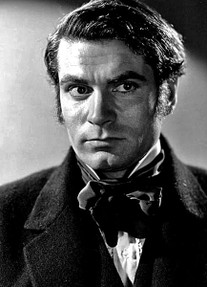 This is, of course, highly debatable, as is every one of the following points.
This is, of course, highly debatable, as is every one of the following points.


 OK, so we've established that your main character needs to be essentially 'good', and now I might seem to be contradicting myself. Well, I am and I'm not.
OK, so we've established that your main character needs to be essentially 'good', and now I might seem to be contradicting myself. Well, I am and I'm not.
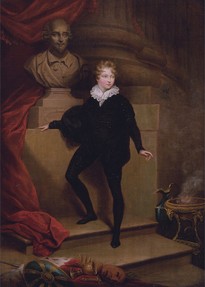 I am aware that I have already mentioned one very famous protagonist for whom this does not hold true.
I am aware that I have already mentioned one very famous protagonist for whom this does not hold true.

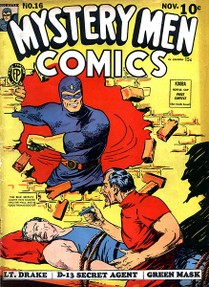 Even when you're writing in the first person, you don't want to put a protagonist's heart on her sleeve - at least not from the get-go.
Even when you're writing in the first person, you don't want to put a protagonist's heart on her sleeve - at least not from the get-go. 




 How to Avoid College Debton 07/31/2014
How to Avoid College Debton 07/31/2014
 Was Charlotte Bronte Jealous of her Sister Anne?on 07/15/2014
Was Charlotte Bronte Jealous of her Sister Anne?on 07/15/2014
 Whose Side is Cancer Research UK on?on 07/06/2014
Whose Side is Cancer Research UK on?on 07/06/2014
 A Plot Summary of Electra by Sophocleson 07/05/2014
A Plot Summary of Electra by Sophocleson 07/05/2014


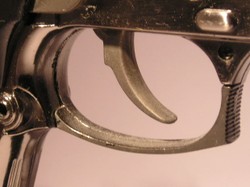
Comments
Keep in mind, just 'cause it didn't work, doesn't mean it's a failure. I'm sure you've got some valuable stuff in those 80 pages. But, of course, no one method is going to work for every person or every novel - figuring out the plot in its entirety first may well be the best way for you to go. Mapping the plot is something I've been meaning to write about - it's on my to-do list.
:-) I did write some 80 pages just taking the story places that came to mind. It didn't work. I feel now I have to work backwards. I need a strong plot first and foremost.
Good luck with your own writing! I can see why working on other novels must have sharpened your skills :-)
Look forward to reading your Helium articles as well!
Know the feeling! I've been honing my skills working on other people's brain children - and, so far, haven't been able to get any of my own work finished. Hopefully, this year, that's going to change. A big bonus about the route I've come is that my writing is much improved now compared with when I first started doing it for a living. So, in theory, once I am ready to publish something under my own name, it will be better than it would have been if I'd managed to do it two or three years ago.
Sometimes your own doubts really can be your worst enemy, I think. You can effectively talk yourself out of an idea. When you have the time, it might be good to simply start writing. Any problems in the plot may iron themselves out. If not, you can sit on it and come back to them. Often though, solutions seem much clearer when you're focusing on another part of the story, characters take on a life of their own and the plot can find its own way. That's been my experience anyway.
Both lack of time and figuring out the plot. I often think about the plot as I walk about town, and have so many doubts and question marks.
Have you published anything yet (as your own work)? I'd love to take a peek :-)
Thanks, Mira. I'm glad that you found this, and some of my other creative writing Wizzes, useful. Is it fleshing out the details that's stalling your own novel or just a lack of time? Lack of time is always a problem for me, but have determined to start making time for more of my own work - over the past year or so, I've been predominantly ghostwriting.
I enjoyed your article. I often forget that the main character should have a goal! How funny of me. I often enjoy the rides much more than the destinations ;-) Nice read! I do hope to figure out things eventually and get on with my novel.Your articles and wonderful reminders of things to pay attention to when devising a plot.